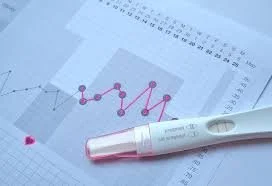How does a short menstrual cycle affect fertility?
It depends. Some variations in cycle length can be normal. However, if you usually have a cycle that's less than 23 days, something may need correcting.
The two things that can go wrong in a shorter cycle impacting fertility are either a short follicular phase from Day 1 to around Day 14, when you are growing the egg ready for ovulation, or a short luteal phase, from ovulation to the next period.
Are you having trouble ovulating or implanting? Perhaps you are regularly ovulating, but haven’t enough time to implant? If ovulation occurs about halfway through your cycle and your next period occurs less than 10 days later, you may have a short luteal phase. Luteal phases less than around 10 days may indicate a luteal phase defect, which can impact fertility. If you ovulate and your body isn't able to secrete enough progesterone to support a pregnancy during the luteal phase by building up an adequate uterine lining, the pregnancy may not be successful.
The easiest way to tell which of the phases is shortened is to track your cycle. Tracking daily temperatures and checking cervical mucus variations then entering the data into your fertility app will begin to provide a clear picture of what is going on. Perhaps you have recognised other bodily signs that indicate you are ovulating?
Getting the body back in balance and providing the required nutrients can give you a healthy menstrual cycle within months.
*Module 4 in the ‘Making Healthy Babies’ preconception program will support your understanding of your cycle. The best thing is, you can use body literacy for achieving or avoiding pregnancy as you can accurately predict your 6 fertile days of the month.

